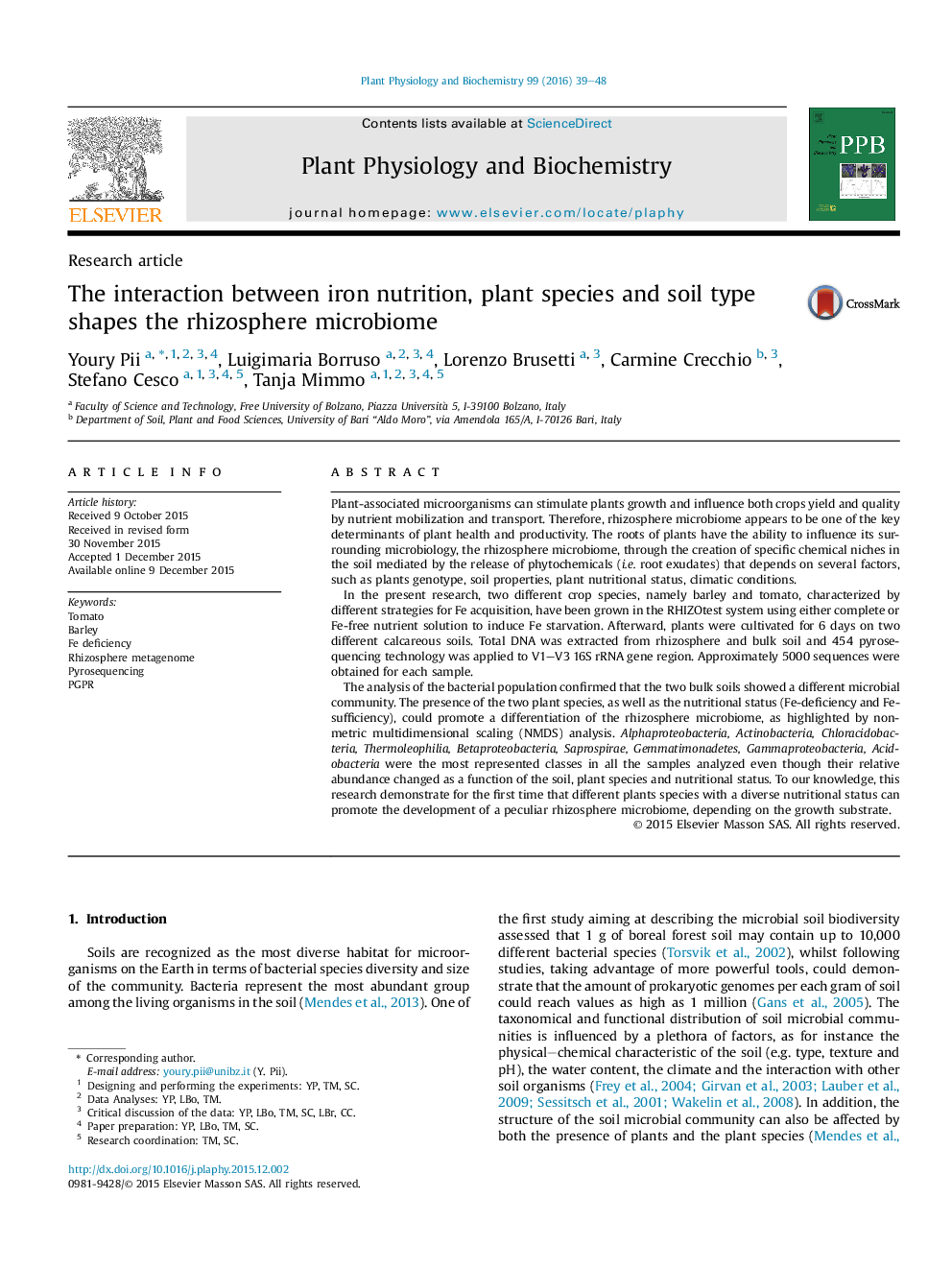| Article ID | Journal | Published Year | Pages | File Type |
|---|---|---|---|---|
| 2014786 | Plant Physiology and Biochemistry | 2016 | 10 Pages |
Abstract
The analysis of the bacterial population confirmed that the two bulk soils showed a different microbial community. The presence of the two plant species, as well as the nutritional status (Fe-deficiency and Fe-sufficiency), could promote a differentiation of the rhizosphere microbiome, as highlighted by non-metric multidimensional scaling (NMDS) analysis. Alphaproteobacteria, Actinobacteria, Chloracidobacteria, Thermoleophilia, Betaproteobacteria, Saprospirae, Gemmatimonadetes, Gammaproteobacteria, Acidobacteria were the most represented classes in all the samples analyzed even though their relative abundance changed as a function of the soil, plant species and nutritional status. To our knowledge, this research demonstrate for the first time that different plants species with a diverse nutritional status can promote the development of a peculiar rhizosphere microbiome, depending on the growth substrate.
Related Topics
Life Sciences
Agricultural and Biological Sciences
Plant Science
Authors
Youry Pii, Luigimaria Borruso, Lorenzo Brusetti, Carmine Crecchio, Stefano Cesco, Tanja Mimmo,
